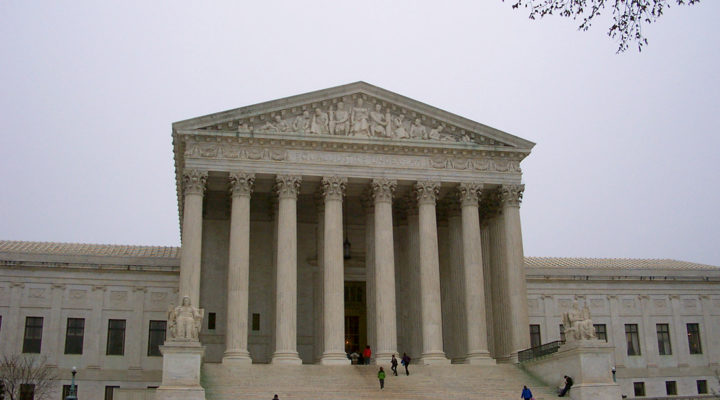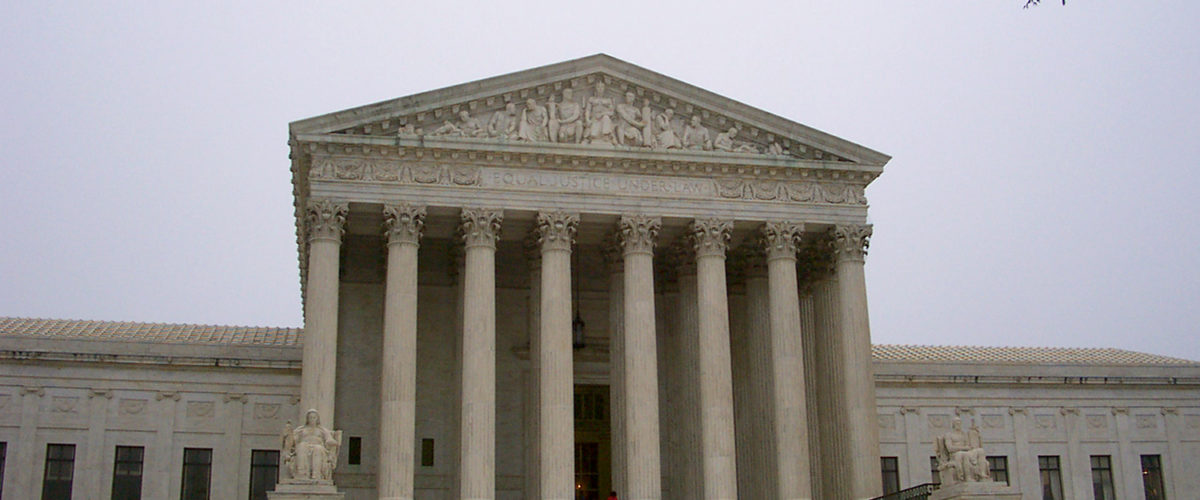Church-state issues can be emotionally, and legally, challenging subjects. They can influence the direction a municipality, state and nation can take on matters of faith and government.
Now, the U.S. Supreme Court has agreed to hear a case on church-state issues that originated in Missouri and the Baptist Joint Committee for Religious Liberty has agreed to weigh in on the matter.
The BJC’s Holly Hollman, general counsel and associate executive director, agreed to answer questions about the Missouri case and its importance.
The U.S. Supreme Court will hear a case, Trinity Lutheran Church v. Pauley, that originated in Missouri. What’s the case about?
It’s a funding case that arises out of an effort by Missouri’s natural resources department to reduce landfill waste. There is a state program that awards a limited number of monetary grants to organizations that make playground improvements using recycled tires. Trinity Lutheran Church, which operates a preschool ministry, applied for the money to improve its playground. After the application was denied, the church sued the state.
The case particularly deals with provisions in the Missouri Constitution. Can you explain that?
Missouri’s constitution — like more than half of the state constitutions in our country — has a specific provision prohibiting tax support for churches. It clearly states that no money taken from the “public treasury, directly or indirectly” can be used “in aid of any church, sect or denomination of religion.”
This provision is more explicit than the federal Constitution’s religious liberty protections in the First Amendment, which protect against any government establishment of religion and the free exercise of religion.
The issue in this case is whether the federal Constitution requires the state of Missouri to include churches that own playgrounds as part of their ministries in this state funding program, despite the state’s longstanding constitutional ban on the funding of churches.
To support religious liberty, you are taking the state’s side and not the church’s. Why?
In this case, the state’s side is better for religious liberty. Far from demonstrating hostility toward religion, the provision in Missouri’s constitution serves to protect religious liberty by recognizing the separation between the institutions of religion and government. Houses of worship and the government have separate funding sources, and they have different roles and responsibilities. Restrictions on aid to religious institutions are not suspect; they are an effective means to protect religious liberty and the separation of church and state. While our constitutional tradition may allow some limited government funding to religiously affiliated institutions for some activities, churches are often treated differently to ensure their autonomy and religious liberty.
You filed a brief on this case with the Supreme Court. What is a brief and what role can it play?
The BJC gets involved in religious liberty cases at the U.S. Supreme Court (and other courts) by filing briefs as “amicus curiae,” a term that literally means “friend of the court.”
We don’t ask the government to fund or give grants to build our churches, so we should not ask the government to fund our capital improvements, either.
Amicus briefs assist courts by providing additional context or support for specific points at issue in the dispute. A decision by the U.S. Supreme Court interpreting a constitutional provision sets the standard for lower courts and provides guidance for other similar situations. Our amicus briefs serve to remind the justices of the unique ways our country protects religious liberty, what that looks like in a particular case, and what consequences a ruling might have. Over our 80-year history, the BJC has filed more than 140 briefs. We know they are read and considered. On occasion, our briefs have been mentioned during oral argument and noted in decisions.
While the Supreme Court hears only a small number of religious liberty disputes, each such case presents an opportunity both to influence the Court’s decision and engage the public in debates about the practical meaning of the religious liberty Americans enjoy.
Could you summarize your key arguments in the brief?
The BJC brief reviews the Founders’ fight to avoid tax support for churches in the United States, discussing the historical fight for disestablishment that was led by Baptists and other religious dissenters. It reminds the Court that the fight was about making sure there is no government establishment of religion, which ensures that churches would be funded through voluntary offerings of adherents.
It also notes that Missouri’s efforts to categorically exclude churches from participating in its playground resurfacing program is firmly rooted in the state constitution, allowing the state to avoid the risk of funding religion or determining the line between religious and nonreligious activity on church grounds.
While the church claims it should be eligible for government funding because the playground materials are secular, the brief points out that facilities owned and operated by the church are not specifically segregated between secular and religious use and it’s difficult to say that any part of a church has absolutely no religious importance. The way a church uses its property and the extent to which a ministry involves explicitly religious activities is a matter of church autonomy, and the state can — and should — avoid trying to determine if some part of a church’s use of its facilities is sufficiently secular to qualify for government funding.
We don’t ask the government to fund or give grants to build our churches, so we should not ask the government to fund our capital improvements, either.
The original version of this story was was published at wordandway.org.



